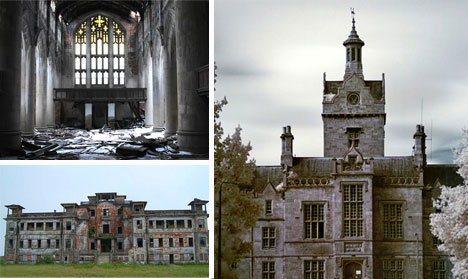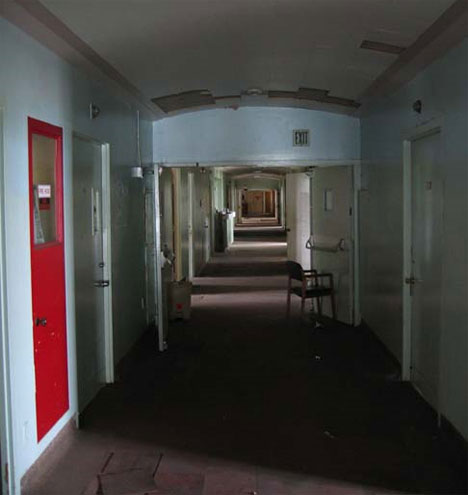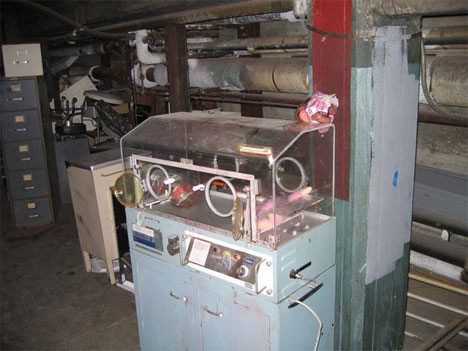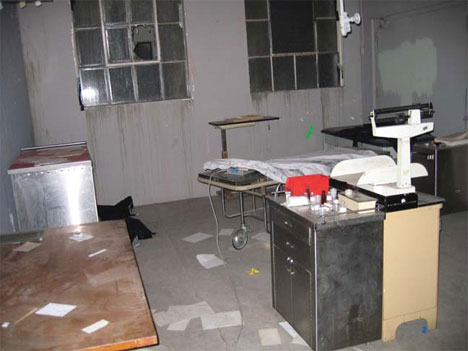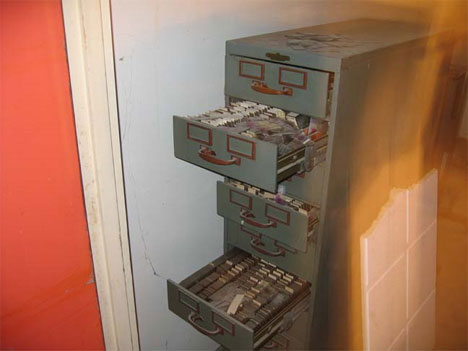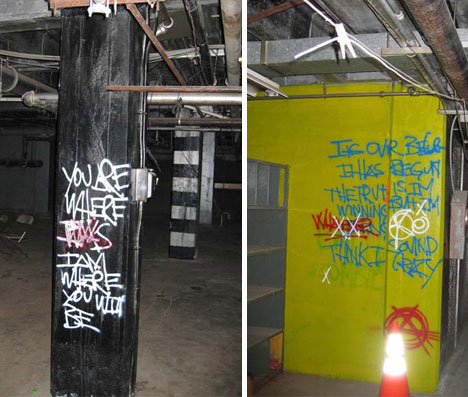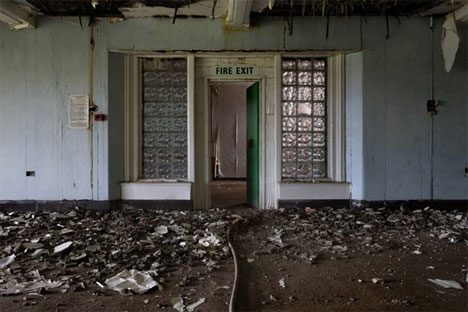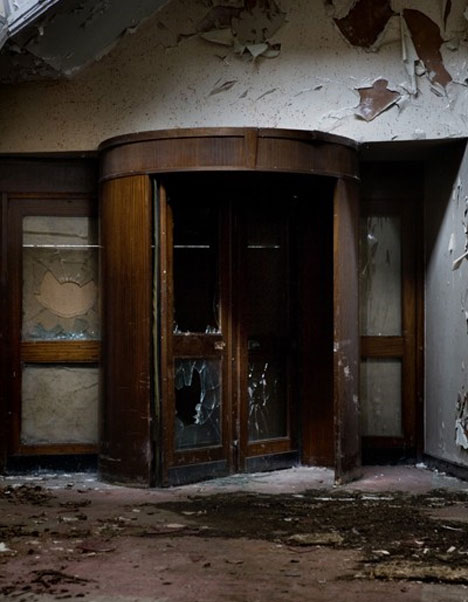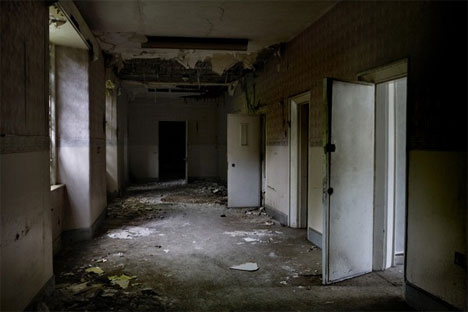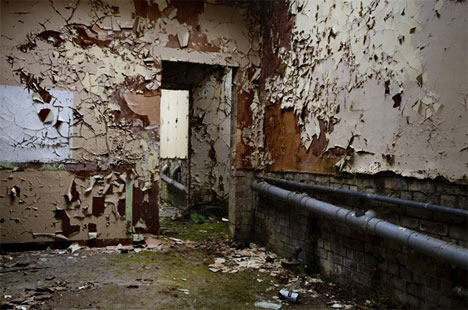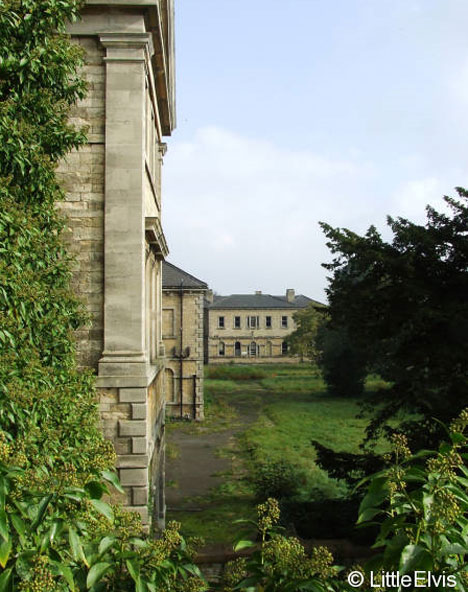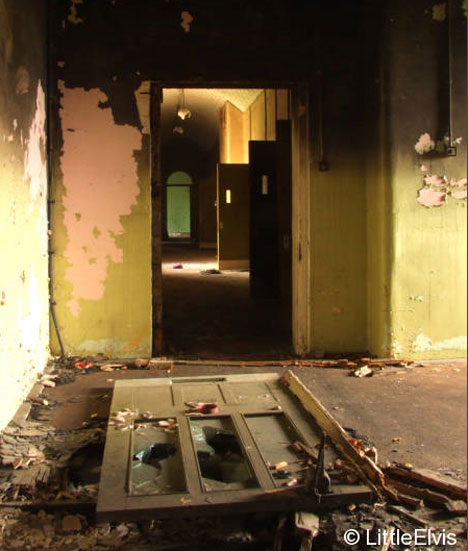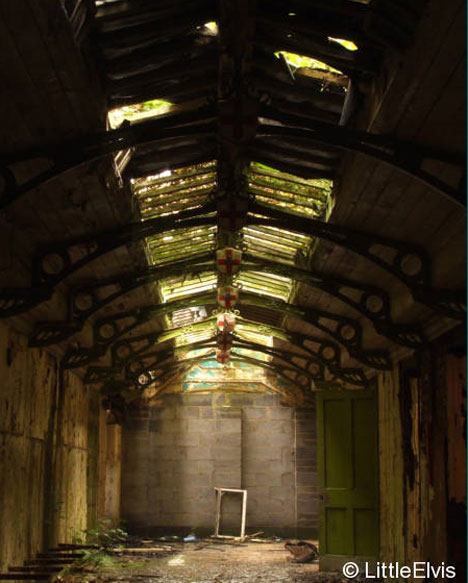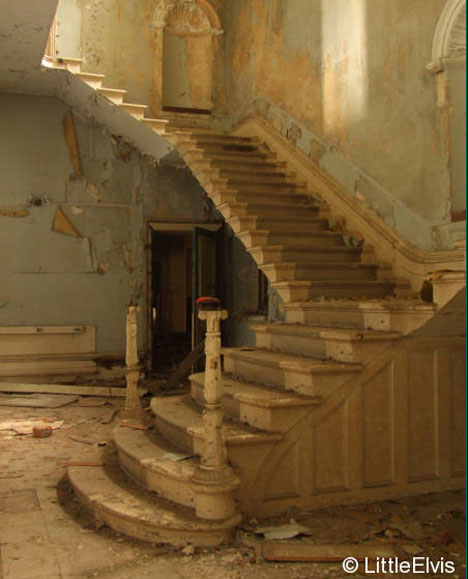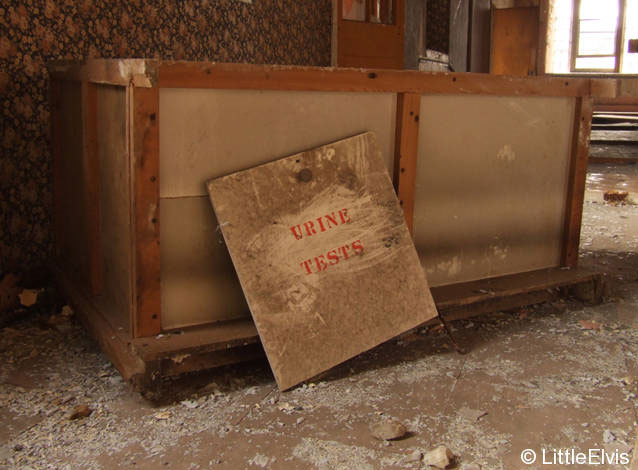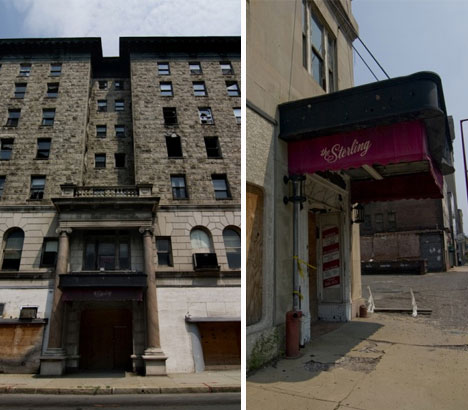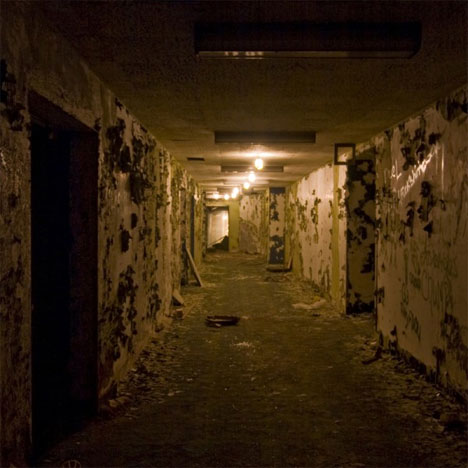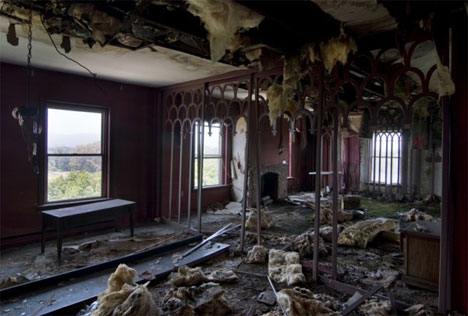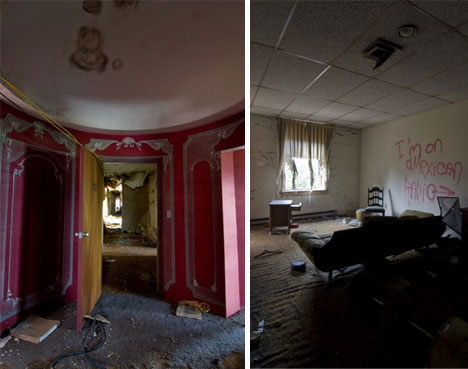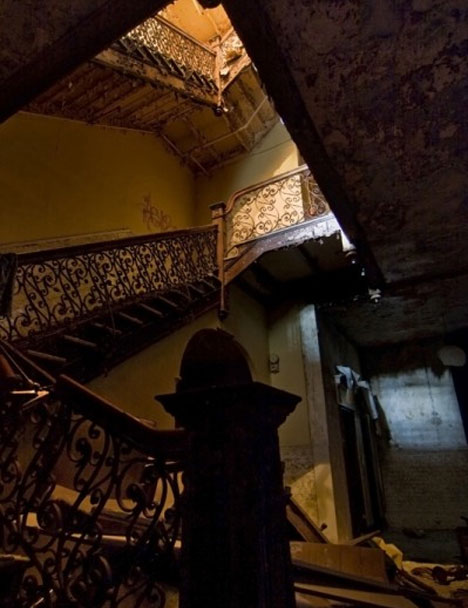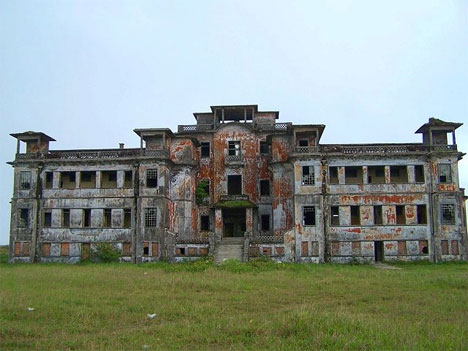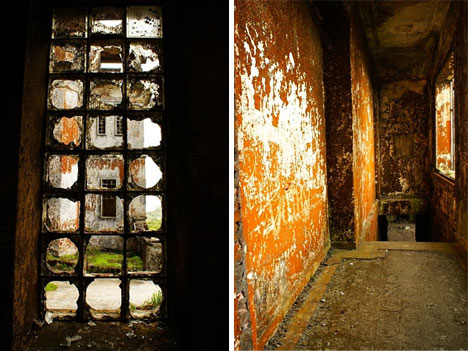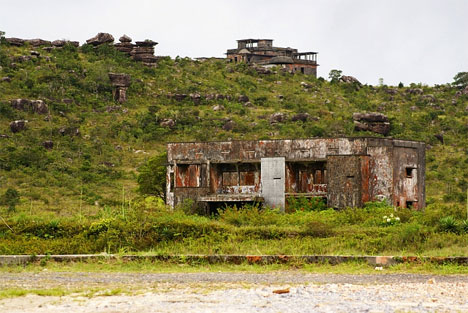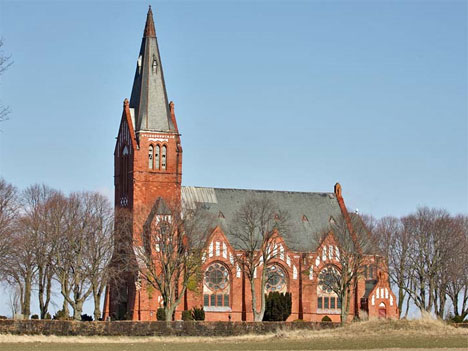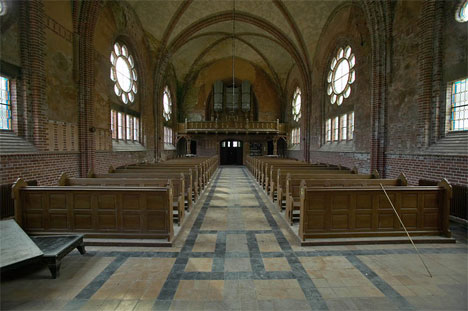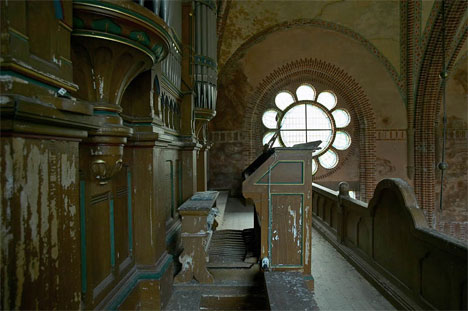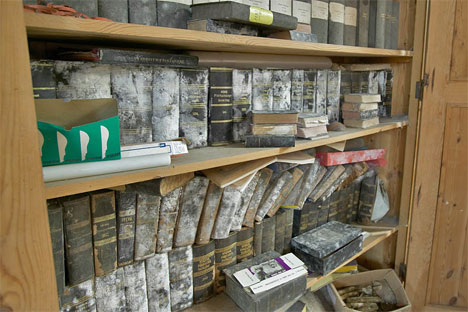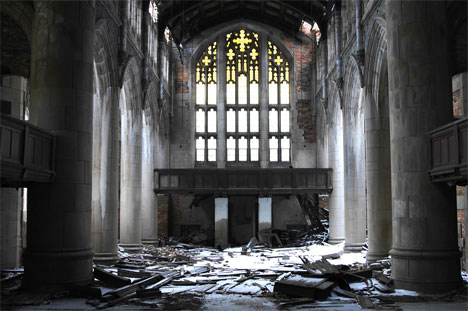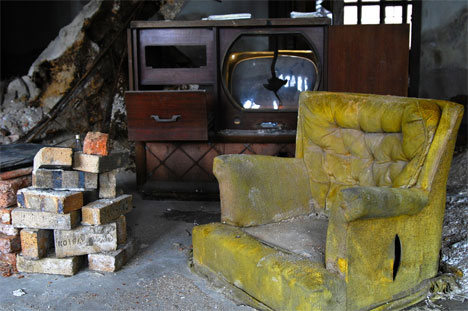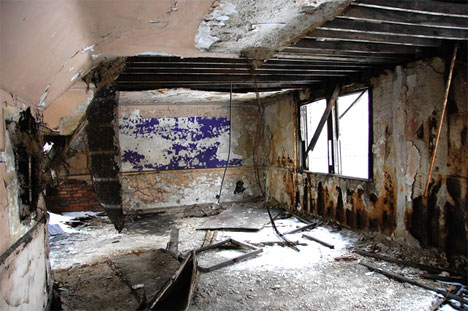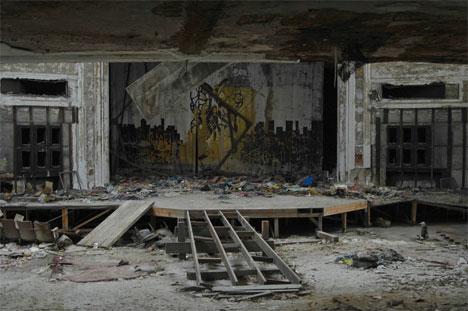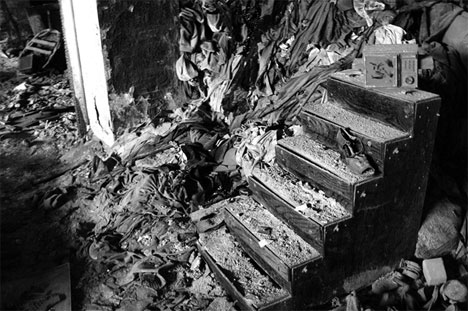What is it about abandoned buildings that’s so alluring? What causes us to be fascinated by the deserted and forgotten ruins of structures that once teemed with life? It may have something to do with the original purpose of those buildings. Homes and towns where families once lived are fascinating, but there’s something tragic and amazing about hospitals, churches, hotels and asylums. These homes-away-from-home were often the setting of life-changing experiences. When they’re abandoned and left to return to dust, we can’t help but imagine what used to take place within those walls.
Linda Vista Hospital
(images via: Abandoned but not Forgotten)
Linda Vista Hospital in Los Angeles has actually enjoyed a full life after closing its doors as a medical facility in 1990. It has been used as a filming location for television shows, music videos, and movies. While it doesn’t have a permanent function at the moment, it is patrolled by security officers and film crews can frequently be seen roaming the halls. Many who have been there claim that the former hospital is haunted; they swear they can hear voices and have seen the specters of deceased patients wandering the halls.
North Wales Hospital
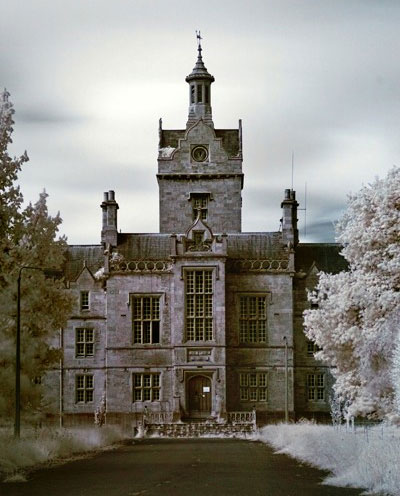
(images via: Opacity)
In 1842, Dr. Samuel Hitch noticed the terrible treatment that poor Welsh mental patients were receiving in English asylums. He drummed up public interest in building a new lunatic asylum to serve Northern Wales, and in 1848 Denbigh Asylum opened its doors. It operated until 1995. Since then, its future has been somewhat uncertain. When Prince Charles visited the site in 2004, he seemed confident that the area could be used for a new housing development. As of today, those plans have stalled. This is good news for the intrepid explorers who long to see inside this historic building.
St. John’s Hospital/Lincolnshire County Pauper Lunatic Asylum
(images via: Dereliction)
Penniless “lunatics” were also the main residents of St. John’s Hospital in Lincolnshire, England. Opened in 1852, the asylum was enlarged and expanded many times until its final closure in 1989. It was later converted to apartments, but not before urban explorers were able to get in and have a look around at what is left over after pauper lunatics occupy a building for more than 140 years.
Hotel Sterling
(images via: Opacity)
In Wilkes-Barre, Pennsylvania, an imposing building has stood over the downtown intersection of River Street and Market Street since 1897. The impressive interior was once a luxurious hotel, but after a fire in 2000 it was all but abandoned. The land was purchased by a non-profit group in 2006; they tore down the tower portion of the property and plan to develop the main building to include modern homes and offices.
Bokor Hill Station Resort
(images via: Urban Desertion)
Bokor Hill was once a resort meant to provide French immigrants a respite from the harsh heat and humidity in Cambodia. The crowning glory of this small town was the Bokor Hill Station, a large hotel/casino. The entire town was abandoned and now stands as a favorite place of backpackers who want to avoid the tourist scenes in the large Cambodian cities.
Church in Maglarp, Sweden
(images via: Jakob Ehrensvärd)
Abandoned churches are some of the most fascinating abandoned structures. Knowing that crowds once packed in there every Sunday to share a time of worship makes the buildings seem almost mystical. Even more intriguing is the churches which are abandoned with supplies and furniture still in them. This church was abandoned around 1976, but since it was built in 1908 and considered an historic building, the local parish had difficulty gaining permission to have it demolished. The permission was finally gained in 2007; the church now exists only in photographs and memories.
Abandoned Church in Gary, Indiana
(images via: City Eyes Blog)
This church in Gary, Indiana has been closed since the 1970s due to lack of attendance. Today, the interior is falling down and full of decay. Still, it’s not difficult to picture what Sunday services must have been like in this beautiful setting. The destruction of the inside makes the building strangely peaceful while reminding us that, without human intervention, our man-made structures are quickly taken down by nature and by time.
